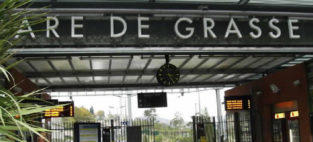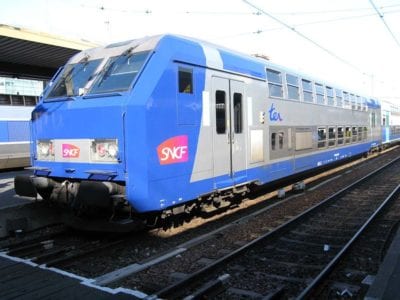On Monday afternoon, SNCF train service was heavily disrupted on the Nice-Ventimiglia, Nice-Tende, Nice and Cannes-Grasse-Draguignan-Les Arcs lines, leaving many travellers stranded and annoyed.
SNCF agents legally exercised their “right of withdrawal”, a provision that allows all workers to “withdraw from a situation” of work that presents a “grave and imminent danger to his life or health” according to the Labour Code, after the assault of three controllers Monday morning on board a regional train travelling between Grasse and Mouans-Sartoux, a line operating since 2006.
The attack took place on a TER in Grasse at 11:25 am. Two young men boarded the train at Grasse having told controllers they’d purchase their tickets on the train by carte bleue (French debit card), because they were late arriving.
A few minutes later, both passengers refused to pay their tickets and a fight ensued with three controllers, two of whom were injured. One got a blow to the head and the other suffered a broken wrist; both were taken to hospital.
As a result few trains were circulation across the day.
However, last night, additional means to secure Grasse-Mouans-Sartoux line were announced by regional management, to the satisfaction of the trade unionists.
TER Train service was back to normal Tuesday although in Nice on Tuesday the tram line was shut down after a passenger in his sixties suffered a fatal heart attack around 2:23 pm at the Cathédrale Vieille-ville stop in Old Town. Full service was restored by 4 pm.
Unlike the right to strike, the right of withdrawal does not entail the cover? of wages or punishment. Its duration is indefinite and employees can return to work only when they feel that their health or life are no longer in danger. As such, an employer cannot force his or her employee to go back to work.
Train service disrupted over safety concerns

